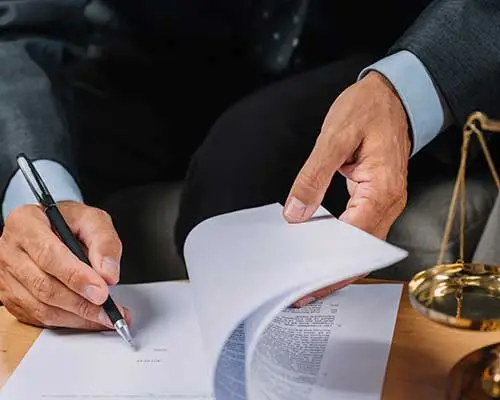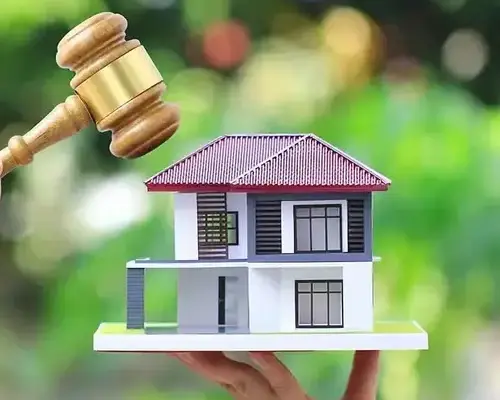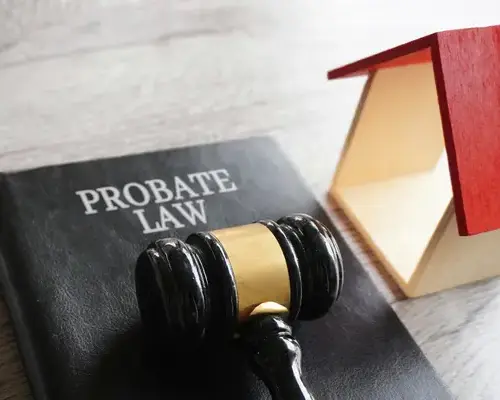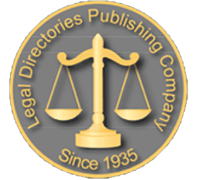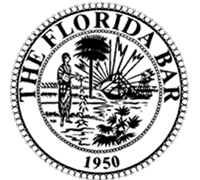Why Hire a Business Partnership Dissolution Lawyer?
Many people think you only call a lawyer when a partnership split turns hostile. In reality, the smartest time to seek legal counsel is at the very beginning. Ending a business is a major transaction, and you need an expert to protect your financial interests. A business partnership dissolution lawyer acts as your strategic advisor, helping you understand your rights and obligations under your partnership agreement and Florida law. They are skilled negotiators who can help you reach a fair settlement on asset division and debt responsibility, ensuring the final decisions are based on sound business principles, not just emotion.
Key Takeaways
- Engage Legal Counsel Proactively: Hiring a business dissolution lawyer from the start is a strategic move to prevent conflicts and protect your personal assets, rather than a last resort for a contentious split.
- A Lawyer Manages Every Detail: Your attorney’s role is comprehensive, covering everything from valuing assets and allocating debts to mediating disputes and filing the final paperwork to ensure a clean, legally sound closure.
- Prioritize Florida-Specific Expertise: The dissolution process is governed by state law, so choosing a lawyer with proven experience in Florida business regulations is critical to protecting yourself from future liabilities.
Why Hire a Lawyer to Dissolve Your Partnership?
Ending a business partnership is rarely as simple as just walking away. It’s a formal legal process that involves untangling shared finances, assets, and responsibilities. While you might be tempted to handle it on your own to save money, especially if the split is amicable, going without legal guidance can expose you to significant personal and financial risks. A business dissolution lawyer acts as your advocate, ensuring the process is handled correctly, your interests are protected, and all legal requirements are met.
Think of a lawyer not as a last resort for a contentious split, but as a strategic partner for a smooth transition. They bring objectivity to an often emotional situation, helping you and your partner work through complex negotiations and paperwork. From valuing the business to dividing assets and settling debts, an experienced attorney ensures every detail is addressed according to Florida law. This proactive approach helps prevent future disputes and liabilities that could come back to haunt you long after you’ve moved on. Hiring a professional provides the peace of mind that comes from knowing your business is being closed properly and your future is secure.
Common Myths About Hiring a Lawyer
Many business owners hesitate to call a lawyer because of a few common misconceptions. One major myth is that hiring legal counsel automatically means you’re headed for a courtroom battle. In reality, many partners can agree to dissolve their business without ever stepping foot in court. A skilled lawyer facilitates negotiation and mediation to find common ground. Another misconception is that business attorneys are only interested in conflict. On the contrary, a good lawyer’s goal is to protect your interests and help you move forward successfully, which often means finding the most efficient and amicable path to dissolution.
Signs You Need Legal Help
Knowing when to bring in a professional is key. You should definitely hire a lawyer if there are signs of serious conflict, such as a breach of the partnership agreement or one partner misusing company assets. However, you don’t have to wait for a crisis. If communication is breaking down, you disagree on the company’s value, or you’re simply unsure of the steps involved, it’s time to seek legal advice. Even minor disputes can escalate quickly during a dissolution. Getting an attorney involved early can de-escalate tension and keep the process on track before small disagreements turn into major roadblocks.
The Advantage of Early Legal Advice
Engaging a lawyer at the very beginning of the dissolution process is one of the smartest moves you can make. When you and your partner aren’t ending things on the best terms, an attorney can step in to help you negotiate the many issues that need to be resolved. They can review your partnership agreement, outline your rights and obligations, and create a clear strategy for the dissolution. This early guidance helps set a professional tone for the negotiations and ensures you don’t make critical mistakes out of emotion or a lack of information. It’s about being proactive rather than reactive, saving you time, money, and stress in the long run.
Understanding Legal Costs and Their Value
It’s true that you can close a company without legal assistance, but doing so is a significant gamble. While hiring a lawyer is an upfront cost, it’s an investment in protecting your financial future. The real value lies in risk mitigation. An attorney ensures that all debts are properly handled, assets are fairly divided, and all necessary legal documents are filed correctly, shielding you from personal liability for business debts. When you hire a lawyer when dissolving a business, you’re paying for expertise that helps you avoid costly mistakes, future lawsuits from creditors or your former partner, and potential tax complications. The cost of a clean break is often far less than the cost of a messy one.
What Does a Partnership Dissolution Lawyer Do?
When a business partnership comes to an end, it’s rarely as simple as shaking hands and walking away. The process is layered with legal, financial, and even emotional complexities that can quickly become overwhelming. A partnership dissolution lawyer acts as your professional guide, ensuring the entire process is handled correctly and that your personal interests are protected every step of the way. Their job is to manage the intricate details—from the initial decision to dissolve to the final signature on the paperwork—so you can focus on your next chapter without looking over your shoulder.
From drafting the official agreements to mediating disagreements, a lawyer’s role is comprehensive. They work to untangle shared assets and debts, ensure all state and federal regulations are met, and help you uphold your legal obligations to your partners. Think of them not just as a legal representative, but as a strategic advisor who can help you achieve a clean and fair separation. With an experienced business law attorney on your side, you can move through the dissolution with clarity and confidence, avoiding common pitfalls that could lead to future disputes, financial loss, or damage to your professional reputation. They bring objectivity to a situation that can be highly personal, making sure decisions are based on sound legal and financial principles, not just emotion.
Manages Legal Paperwork and Filings
One of the most critical tasks a lawyer handles is preparing the partnership dissolution agreement. This is the foundational legal document that outlines every step of the wind-down process. It details how assets will be split, who is responsible for which debts, and the final timeline for closing the business. Your attorney will draft this agreement to reflect the terms you’ve negotiated, ensuring the language is clear and legally sound. They also manage all necessary filings with the state of Florida, making sure your business is officially and properly closed to prevent any lingering legal liabilities down the road.
Values and Divides Assets
Figuring out who gets what is often the most contentious part of a dissolution. A lawyer helps create an objective and orderly process for valuing and dividing the partnership’s assets. This includes everything from physical property like equipment and real estate to intangible assets like client lists, intellectual property, and brand reputation. They work to ensure the distribution is fair and aligns with your partnership agreement or, in its absence, state law. If disputes arise, your attorney will advocate for your position and help negotiate a resolution that protects your financial stake in the business, ensuring you receive your rightful share.
Allocates Debts and Liabilities
Just as assets must be divided, so must debts. A dissolution lawyer conducts a thorough review of the partnership’s finances to identify all outstanding liabilities, including loans, accounts payable, and other financial obligations. They then work to ensure these debts are allocated fairly among the partners according to the partnership agreement or Florida law. Properly handling this step is crucial for protecting your personal credit and finances, as it prevents you from being held solely responsible for the entire partnership’s debt down the road. This clean break is essential for your future financial health.
Mediates Disputes
Even in the most amicable separations, disagreements can happen. When partners can’t see eye-to-eye on key issues, a lawyer can act as a mediator to help find common ground. By facilitating productive conversations and offering objective legal guidance, they can often resolve conflicts before they escalate into expensive and time-consuming litigation. If a fair agreement can’t be reached through negotiation, your attorney is prepared to represent your interests and fight for a just outcome in court, ensuring your voice is heard and your rights are protected throughout the entire process.
Ensures Tax and Regulatory Compliance
Properly closing a business involves more than just ceasing operations. There are specific state and federal requirements that must be met to avoid future penalties. A partnership dissolution lawyer ensures all final tax returns are filed, creditors are formally notified, and all necessary permits and licenses are canceled. They make sure every box is checked with agencies like the IRS and the Florida Department of State. This meticulous attention to regulatory compliance protects you from future audits, fines, and legal troubles long after the business is closed, giving you true peace of mind.
Protects Your Fiduciary Duties
As a partner, you have a legal obligation—known as a fiduciary duty—to act in the best interests of the partnership and your fellow partners. This duty doesn’t disappear when you decide to dissolve the business. A lawyer will advise you on how to uphold these responsibilities throughout the dissolution process, helping you avoid actions that could be seen as self-serving or harmful to the partnership. Following this guidance protects you from potential lawsuits from other partners alleging a breach of duty and preserves your professional reputation as you move forward in your career.
What to Look for in a Dissolution Lawyer
Choosing a lawyer to guide you through a partnership dissolution is one of the most critical decisions you’ll make in the entire process. The right attorney acts as your strategist, advocate, and guide, helping you protect your interests while aiming for the smoothest possible resolution. The wrong one can complicate matters, prolong the timeline, and add unnecessary stress and expense. This isn’t just about finding someone with a law degree; it’s about finding a professional whose skills and approach align with your specific needs.
You need an attorney who does more than just file paperwork. They should be a skilled negotiator, a clear communicator, and an expert in the nuances of Florida business law. Think of them as a specialist. Just as you wouldn’t see a general practitioner for heart surgery, you shouldn’t rely on a generalist for something as specific as dissolving a business partnership. The stakes are simply too high. As you begin your search, focus on a few key qualities that separate an adequate lawyer from a great one. Look for proven experience, deep local knowledge, a transparent approach to fees, and a reputation for getting results.
Proven Experience and Expertise
When you’re ending a business partnership, you need a lawyer who has been down this road before—many times. General business law experience is a good start, but specific expertise in partnership dissolution is what truly matters. An experienced attorney can anticipate potential roadblocks, identify opportunities for a favorable settlement, and help you negotiate the many issues that must be resolved. They’ve seen what can go wrong and know how to proactively protect you. When interviewing potential lawyers, ask them directly about their experience with cases similar to yours. The right attorneys will be able to point to a track record of successfully guiding partners through this complex process.
Deep Knowledge of Florida Law
Partnership dissolution is governed by state-specific statutes, and Florida has its own set of rules that must be followed precisely. A misstep in the legal process can result in ongoing liabilities long after you believe the business is closed. That’s why hiring a lawyer with a deep understanding of Florida business law is non-negotiable. They will be familiar with the Florida Revised Uniform Partnership Act, local court procedures, and the precedents set by state case law. This localized knowledge ensures that every document is filed correctly, every deadline is met, and your dissolution is legally sound and final, protecting you from future claims.
Strong Negotiation Skills
Very few partnership dissolutions end without some form of negotiation. You and your partner will need to agree on everything from asset division to debt allocation. A lawyer with strong negotiation skills is your greatest asset in these discussions. They can advocate for your best interests, work toward a fair and equitable agreement, and de-escalate conflict when emotions run high. The goal is to find a resolution that is both practical and legally enforceable, ideally without a lengthy and expensive court battle. A skilled negotiator knows how to be firm on critical points while remaining flexible enough to reach a compromise.
A Clear Communication Style
During a stressful process like a business dissolution, the last thing you need is to be left in the dark by your lawyer. A key quality to look for is a clear and consistent communication style. Your attorney should be able to explain complex legal jargon in plain English, keep you updated on the progress of your case, and be available to answer your questions in a timely manner. This open line of communication builds trust and empowers you to make informed decisions every step of the way. You should feel like a valued partner in the process, not just another case file.
Transparent Fee Structures
Concerns about legal costs are completely valid, and a reputable lawyer will understand and address them head-on. Look for an attorney who is transparent about their fee structure from the very first conversation. Whether they charge an hourly rate, a flat fee, or another arrangement, you should have a clear understanding of what to expect. Don’t hesitate to ask for a detailed breakdown of potential costs. A trustworthy lawyer will be happy to discuss your budget and provide a clear fee agreement in writing. This transparency prevents surprises down the road and allows you to focus on the important task of dissolving your partnership. You can always contact a firm to discuss your specific situation and their fee policies.
A Sterling Reputation
A lawyer’s reputation is a powerful indicator of their skill, professionalism, and ethical standards. Before making a final decision, do some research. Look for client testimonials, online reviews, and peer ratings from legal organizations. A strong reputation within the legal community suggests that the attorney is respected by judges and opposing counsel, which can be a significant advantage in negotiations. Ultimately, you are entrusting this person with your financial future. Choosing a lawyer with a proven record of integrity and success gives you the confidence that your case is in capable hands.
The Partnership Dissolution Process: A Step-by-Step Guide
Ending a business partnership is more than just deciding to go your separate ways. It’s a formal legal process that, if not handled correctly, can leave you exposed to lingering debts and disputes. Think of it as dismantling something you built together—it requires a clear plan and careful execution to ensure everyone walks away with what they’re owed and that the business is closed responsibly. A structured, step-by-step approach is the best way to protect your personal assets and professional reputation.
Following a defined process helps remove emotion from the equation and focuses on the facts. It ensures that all financial, legal, and operational threads are neatly tied up. From reviewing your initial agreement to filing the final paperwork with the state, each step is a building block for a clean break. Working with experienced Florida business attorneys can provide clarity and direction, helping you manage the complexities so you can concentrate on your next chapter. This guide walks you through the essential stages of dissolving a business partnership.
Step 1: Initial Legal Consultation
Your first move should be to speak with a business lawyer. This isn’t about escalating a conflict; it’s about gaining a clear understanding of your rights, responsibilities, and the path ahead. During an initial consultation, an attorney can review your situation, explain the potential legal and financial implications, and outline a strategy tailored to your specific circumstances. This meeting sets the stage for a smoother process, helping you avoid common missteps that can complicate the dissolution. Having a professional on your side from the start allows you to focus on the future while they handle the legal details. You can schedule a consultation to get the guidance you need to begin the process with confidence.
Step 2: Reviewing the Partnership Agreement
Your partnership agreement is the foundational document for your business relationship, and it’s also the roadmap for its conclusion. This agreement should detail the specific procedures for dissolution, including how assets and liabilities are to be divided and the roles each partner will play in winding down operations. A thorough review of this document is essential to understand the terms you’ve already agreed to. If your partnership agreement is vague or you don’t have one, Florida state law will dictate the process. An attorney can help interpret the agreement’s terms or explain how state statutes apply, ensuring every action you take is on solid legal ground.
Step 3: Inventory of Assets and Liabilities
Before you can divide anything, you need a complete picture of the business’s financial health. This step involves creating a comprehensive inventory of all company assets and liabilities. Assets include everything the business owns, such as cash, accounts receivable, equipment, real estate, and intellectual property. Liabilities are everything the business owes, including loans, supplier debts, and lease obligations. A meticulous accounting is critical for ensuring a fair distribution and formally closing the business. Failing to account for every detail can result in future financial claims or legal troubles long after you believe the partnership has ended.
Step 4: Negotiating the Dissolution Terms
This is where you and your partners decide the specifics of the separation. Negotiations will cover the division of assets, the settlement of debts, and any ongoing responsibilities. Discussions can become contentious, especially when partners have different views on valuation or future plans. An experienced attorney is invaluable here, acting as your advocate and a mediator to keep the conversation productive. The goal is to reach a fair and equitable agreement that all partners can accept. Having one of our skilled negotiators on your side ensures your interests are protected while working toward a practical resolution that avoids costly litigation.
Step 5: Finalizing Legal Documents
Once you’ve reached an agreement, the final step is to make it all legally binding. This involves drafting a formal partnership dissolution agreement that clearly outlines all the negotiated terms. Beyond this core document, you’ll also need to handle other critical paperwork. This includes notifying creditors, closing business bank accounts, filing final tax returns, and submitting the necessary dissolution forms with the state of Florida. An attorney will ensure all documents are properly drafted and filed, providing the finality you need. This meticulous approach to finalizing the paperwork protects you from future liabilities and officially closes this chapter of your professional life.
Handling Common Dissolution Challenges
Even the most amicable partnership dissolutions can hit a few bumps. When you’ve invested time, money, and passion into a business, untangling everything is bound to be complex. Having a clear understanding of the common hurdles can help you prepare for what’s ahead. A lawyer’s role is to anticipate these issues and create a strategy to address them before they escalate into costly disputes. From dividing assets to managing final communications, every step requires careful attention to protect all parties involved.
Disagreements Over Asset Distribution
One of the biggest points of conflict is deciding who gets what. This includes everything from cash in the bank and physical inventory to office furniture and company vehicles. If your original partnership agreement doesn’t spell out a clear method for asset division, disagreements can quickly bring the process to a halt. Without a plan, resolving these disputes can become a prolonged and stressful battle. An attorney helps establish a fair and legally sound method for valuing and distributing assets, ensuring the process is transparent and equitable for everyone.
Allocating Partner Responsibilities
Closing a business isn’t as simple as locking the doors. The “winding down” period involves a series of crucial tasks, and it’s important to define who is responsible for each one. These responsibilities include paying final bills, collecting outstanding invoices, closing business accounts, and notifying creditors. A partnership dissolution agreement outlines this entire process, establishing the specific obligations of each partner. This legal document prevents confusion and ensures that critical tasks aren’t overlooked, protecting you from future liabilities.
Dividing Intellectual Property
Intellectual property (IP) is often one of a business’s most valuable—and most contested—assets. This can include the company name, logo, client lists, proprietary software, or trade secrets. Deciding who owns or can continue to use this IP after the dissolution is a major challenge. Partners owe a fiduciary duty to each other, meaning they must act in the business’s best interest, even during a split. A lawyer can help you identify all IP assets and negotiate terms for their division or use, protecting your creative and financial investments.
Disputes Over Business Valuation
How much is the business actually worth? It’s common for partners to have very different opinions on this, especially if one partner plans to buy out the other. One might value the business based on its current assets, while another sees its future earning potential. This disagreement can stall the entire dissolution. A business litigation attorney can bring in neutral, third-party appraisers and use established valuation methods to arrive at an objective figure. This ensures that any buyout or asset split is based on a fair and accurate assessment of the company’s value.
Managing Client and Employee Transitions
A business dissolution affects more than just the partners; it impacts your clients and employees, too. You have a legal and ethical obligation to manage these transitions smoothly. This involves notifying clients about the business closing, handling final payroll and benefits for employees, and fulfilling any remaining contractual obligations. Failing to dissolve the partnership properly can result in ongoing legal liabilities. An attorney ensures you follow all state and federal laws for notifying stakeholders and winding down operations, preventing future legal claims.
Protecting Your Future Interests
While it might seem easier to dissolve the business on your own to save money, this approach can leave you vulnerable. Without proper legal oversight, you could unknowingly agree to unfair terms or leave loose ends that create problems down the road. A lawyer’s job is to protect your interests now and in the future. They will review every document, negotiate on your behalf, and ensure the final agreement releases you from future claims related to the partnership. This legal protection is a critical investment in your own financial and professional future.
Related Articles
- Partnership Break Ups – Legal Counsel P.A.
- Hiring a Small Business Lawyer: A Complete Guide
- Attorney for Business Litigation: An Essential Guide
- Business Attorney Orlando: Legal Counsel PA
Frequently Asked Questions
Do I still need a lawyer if my partner and I are on good terms? Even when a split is completely amicable, it’s wise to have legal counsel. A lawyer’s role isn’t just to handle conflict; it’s to ensure the dissolution is legally sound. They make sure all financial loose ends are tied up, the right paperwork is filed with the state, and the final agreement protects both of you from any future liabilities. Think of it as a final, professional step to ensure a clean and complete closure for everyone involved.
What happens if we don’t have a written partnership agreement? This is a common situation, and it makes legal guidance even more important. Without a formal agreement in place, the process of dissolving your partnership will be governed by Florida’s state laws. An attorney can explain how these default rules apply to your business, helping you understand your rights and obligations regarding the division of assets and debts. They will help you create a formal dissolution agreement that follows state law and protects your interests.
Can one lawyer represent both me and my partner to save money? While it might seem efficient, it’s generally not recommended for one lawyer to represent both partners. Each partner has their own individual financial and legal interests to protect, and a potential conflict of interest can easily arise. The best practice is for each partner to have their own separate counsel. This ensures that both of you receive dedicated advice and advocacy, leading to a fairer and more secure outcome for everyone.
What’s the biggest risk of trying to dissolve the partnership without legal help? The single biggest risk is future personal liability. If the business isn’t wound down correctly, you could be held personally responsible for old business debts or taxes long after you think you’ve moved on. Creditors or even your former partner could file a lawsuit against you. A lawyer ensures every legal requirement is met, officially closing the business and shielding your personal assets from any lingering claims.
How long does the dissolution process usually take? The timeline can vary significantly based on your specific situation. A simple partnership with few assets and full agreement between partners might be resolved in a matter of weeks. However, a more complex business with significant assets, debts, or partner disagreements could take several months or longer to finalize. An attorney can give you a more realistic timeline after reviewing the details of your partnership.

